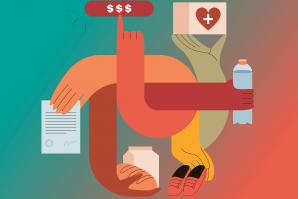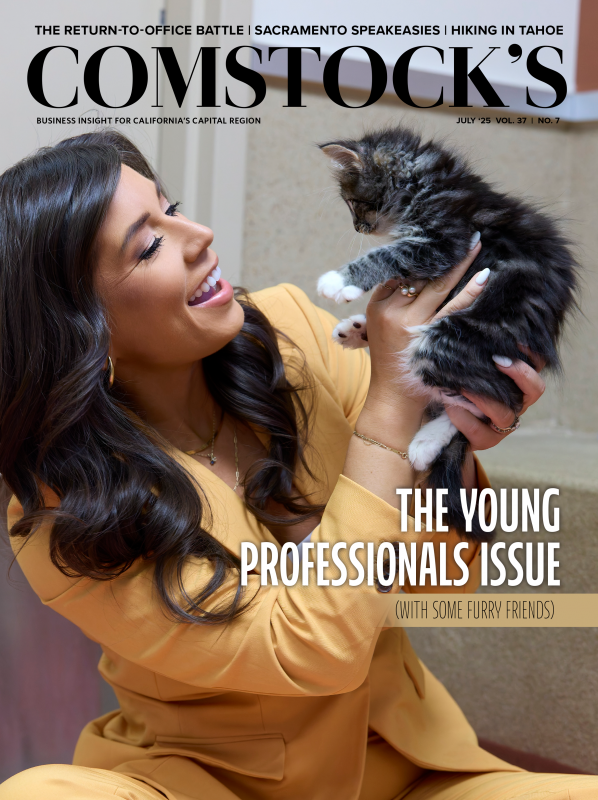That text message, that email — the one that landed on your screen like a rogue asteroid: “We need to talk.” Or maybe it was an unexpected bill that made your stomach drop faster than a rollercoaster. Or perhaps it was the realization, staring at your reflection, that the carefully laid plans for your life had suddenly veered off course in a direction you never saw coming.
The initial reaction? Pure, unadulterated “WTF?” One minute you’re navigating the usual hum of life — work deadlines, social plans, maybe even a budding romance — the next, everything feels, well, different. Unsettled. Like the ground has shifted beneath your feet. And if you’re being brutally honest, there’s the urge to retreat, disappear, to pretend this plot twist isn’t happening.
That feeling of being blindsided by life’s impromptu adventures can be disorienting, to say the least. It brings up all the questions: Why me? What now? How do I even begin to process this? And in these moments, the well-meaning advice to “look on the bright side!” can feel utterly dismissive. Because let’s be real, when you’re in the thick of a “WTF?” moment, finding the bright side can feel like searching for a lost sock in a hurricane.
But here’s the BS-free truth: Life has a flair for the dramatic and rarely sticks to the script we’ve so diligently written. It loves to throw us unexpected turns — a relationship hiccup that feels seismic, a health scare that rattles your foundation, a sudden financial shift that throws your budget into chaos. And while our initial reaction might be shock, confusion or even anger, the real strength emerges in how we navigate the aftermath. It’s not about slapping on a brave face or pretending it doesn’t sting; true resilience is about acknowledging the “WTF?”, allowing yourself to feel the impact and then actively choosing how to find your footing again.
So, how do you start building that “I got this” when life takes an unforeseen turn? How do you show up when all you want to do is hide? Here are a few things that helped me (and might help you too).
Acknowledge the disruption
That initial “WTF?” comes with a wave of emotions. Let them surface. Talk it out, journal your thoughts and allow yourself to be upset. Trying to “be strong” by ignoring the impact only prolongs the process. Don’t sweep it under the rug.
Don’t just take my word for it. Research has shown that suppressing our emotions can negatively impact our mental and physical health, and can even increase our risk of premature death in chronic cases. Noticing where the emotion sits in your body, acknowledging it and asking it what it’s trying to tell you is an exercise you can do right now to slow down and open up a healthy dialogue with yourself. A therapist can help walk you through this simple but lifechanging process of acceptance and self-love.
Connect with your core people
This is the time to lean on the people who know and support you, regardless of the specifics of the situation. Reach out to trusted friends, family and mentors. Their presence and understanding can be a vital anchor.
For me, when a sudden health issue threw my plans into disarray and brought on complete misery, the unwavering support of my family and friends was what kept me from unraveling.
Take small steps toward solid ground
When everything feels chaotic, focus on what you can control in the immediate present. Perhaps a simple routine that grounds you, like folding clothes, or a small act of self-care, like taking a walk, can be a single step towards addressing the situation.
These small actions can create a sense of stability amidst the uncertainty.
Reframe with realistic hope
This isn’t about forcing positivity, but about looking for potential lessons and growth opportunities once you’ve processed the initial shock. Unexpected changes can sometimes lead to positive new directions. It took time, but navigating a difficult relationship to its end ultimately taught me more about my own needs and boundaries in other relationships.
Life’s unscripted moments can feel overwhelming, and that initial “WTF?” can knock the wind out of you. But the journey from disorientation to a place of “I got this” is where your resilience truly takes shape. It’s about acknowledging the unexpected, allowing yourself to feel it and then actively choosing to navigate new terrain with honesty and strength. Ultimately, it’s giving yourself the grace to be human.

–
Stay up to date on business in the Capital Region: Subscribe to the Comstock’s newsletter today.
Recommended For You

Young Professionals: Joaquin Razo
Meet the emerging leaders who envision a bright future for the Capital Region
As project solutions lead at Blue Zones, Joaquin Razo is working to bring the way of life of the world’s longest-lived communities to his home city.

Going Back Is Hard to Do
How to navigate contentious WFH takebacks
Certainly, many employers are recognizing the business benefits of people working together in an office at least a few days per week, but widespread employee protests have shown that implementing that return is going to be an uphill battle. So what do you do as an employer who’s ready to make that call? And what rights do you have if your boss wants you back in a cubicle?

This Time, Donations May Not Be Enough
This time will be different. Nonprofits tend to survive recessions, albeit with considerable tenacity. Today, however, a lot of them directly or indirectly receive government funding for their services. Many of their donors work in public service and companies that support it. As funding for USAID and other large public programs is being cut, nonprofits are losing revenue that donations alone cannot easily replace.

Diversity Still Matters
West Sacramento mayor shares how leaders can advance equity at the local level
Diversity, equity and inclusion are buzzwords that swim all around us. But how we define and put these principles into action comes from somewhere deep inside. For me, it’s my parents’ legacy that inspires me to enact policies that empower constituents, like scheduling town halls in every district in West Sacramento.

Braving the ‘Dog Days’ of Retirement
How to retain purpose, passion and meaning in your life post-career
In my 30-plus years providing financial advice, I’ve worked with many people who have reframed retirement in order to make it work for them. Here’s what I’ve learned.




